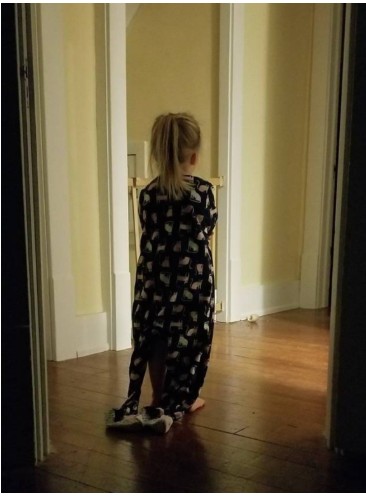The Real Reason Routines Matter for Preschoolers

“The Shoes Were in My Hand”: The Real Reason Routines Matter for Preschoolers
By Kaitlin Hazlett, Director of Empowered Early Learning Academy, Behavioral Specialist, and Mom Who’s Definitely Been There
Let me take you back to a morning that lives in my mind rent-free. My daughter was three. We were running late for preschool. I was juggling a diaper bag, a work bag, her lunch, her actual shoes (not on her feet, mind you), and a lukewarm coffee that would later end up abandoned on the roof of the car. My child—usually delightful—was now a tiny, furious plank of emotional chaos refusing to bend at the knees or sit in her car seat.
What broke our morning? One simple thing: we skipped our routine.
No outfit picking. No snack stop. No “you do your shoes while I finish my coffee.” Just pure, unstructured panic. And my daughter, sensing the disruption in the force, had a full-scale toddler meltdown that could’ve qualified for an exorcism.
So… what went wrong?
It wasn’t just a bad mood or the wrong color socks. It was a classic case of what happens when young children lose their sense of structure. Because for preschoolers, routines aren’t just helpful—they’re essential.
Why Routines Are a Preschooler’s Best Friend
1. Routines Build Security (and Sanity)
Preschoolers don’t have calendars. They live in the now. So when the “now” changes unexpectedly, it can feel like the floor is disappearing beneath them. Predictability helps them feel safe, and when kids feel safe, they’re calmer, more cooperative, and less likely to scream like a banshee in a minivan.
2. They Help with Emotional Regulation
Transitions are hard. So are mornings. And so is life when your granola bar breaks in half. But when kids know what comes next, their nervous systems don’t go into overdrive. Routines create the guardrails that keep emotions from flying off the road.
3. Routines Build Independence
Want your child to put on their own shoes, pack their bag, or start cleaning up without you threatening to cancel bedtime stories for eternity? Build a routine. Repetition gives kids confidence. Confidence gives you… a chance to drink your coffee while it’s still hot.
4. They Support Learning
Brains love patterns. When kids know snack time follows storytime, and outside time follows snack, they can focus less on “what’s next” and more on how to be present, play, and learn.
Real Tools to Make Routines Less Chaotic
✅ Visual Schedules - Kids are visual. Create a chart with pictures showing what happens during the day. Bonus: it reduces the 47 times you’ll be asked, “Is it time to play outside yet?”
✅ Drop-Off Rituals - Try a special hug, handshake, or a silly phrase (“See ya later, tater!”). It gives your child a consistent, loving bridge from you to their day.
✅ Choices Within Routines - Let them choose between two snacks, two shirts, or two songs to brush their teeth to. It gives them power without chaos. (Nobody needs a 30-minute negotiation about socks.)
✅ Practice Makes Predictable - Talk about routines when everyone’s calm. Practice bedtime steps. Role-play the morning rush. Prep them like you’d prepare yourself for a presentation—because to them, it is a big deal.
A Final Word from the Woman with Coffee on Her Car Roof
Routines won’t solve everything, but they will solve a lot. They create structure in a world that often feels unpredictable for our littles. They’re not about military-level discipline or Pinterest-perfect charts. They’re about making life feel manageable—for your child and for you.
At Empowered Early Learning Academy, routines are part of our love language. We design our daily rhythm to help kids feel grounded, respected, and ready to learn. We’re not trying to raise robots—we’re raising resilient, joyful, confident humans who know what to expect and feel empowered to handle it.
And hey, if you ever forget the shoes again… just know, I’ve been there. You’ve got this. Routines help.







